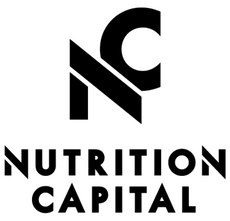About Magnesium:
The mineral magnesium is crucial for the body to function properly because magnesium is involved in more than 600 of the body's enzymatic reactions.
Magnesium deficiency can manifest in many ways, such as inefficient blood sugar metabolism, muscle cramps or soreness, eyelid twitching, fatigue, and poor sleep.*
Why is magnesium important?
• Magnesium is essential for the health of the heart and blood vessels, brain, bones, muscles, and lungs, and to support healthy blood sugar
• Promotes bronchial relaxation
• It’s an essential mineral for electrical activity of the heart, which supports healthy heart rate and rhythm
• Helps relax smooth and skeletal muscle
• Promotes the dilation of blood vessels (vasodilation), which supports normal blood pressure and enhances blood flow
• Supports insulin sensitivity for healthy blood sugar
• Is a cofactor for enzymes involved in cellular energy production
When should I use Magnesium?
Due to the calming and relaxing benefit magnesium has on skeletal muscle, nerves and your brain, it would make sense to take magnesium after exercise and also before bed.
In fact, just for the cortisol lowering ability alone, Magnesium is a smart supplement for exercise recovery.
What foods provide a source of Magnesium?
Green leafy vegetables Nuts Seeds Legumes Sprouts Whole grains - Avocado
- Banana
- Dark Chocolate
How much Magnesium should I take?
There are many studies supporting daily intakes around 900mg per day. However, around half that amount will see you getting noticeable benefits both physically & emotionally.
The dosage of magnesium can vary depending on many variables including;
- Age
- Gender
- Child bearing / breastfeeding
- Training intensity / type / frequency
- And many more…
Below is a Recommended Dietary Allowance (RDAs) for Magnesium based on age & gender. Please note that this is only a recommendation, and your personal needs may be different.

What are the best forms of supplementary Magnesium?
When it comes to supplementing Magnesium, there are a variety of options on the market - which means selecting the right form can be rather confusing!
To start off, one of the worst options is Magnesium Oxide.
Unfortunately, it is cheap to produce (which is why many products use it) and is poorly absorbed. We would recommend steering away from Magnesium Oxide as the primary source of your magnesium intake where possible.
On the other hand, one of the best options is Magnesium Citrate.
This type of magnesium is highly bioavailable (>97%) and provides extremely great benefit.
You will find this form in Switch Nutrition’s Adrenal Switch, as well as Thorne’s Magnesium Citramate.
If you are after the Gold Standard of Magnesium, there is no going past Magnesium Bisglycinate.
Magnesium Bisglycinate by Thorne is a Magnesium molecule bound to two Glycine molecules (hence the name Magnesium Bisglycinate (Bi= two).
This form has superior absorption because of increased solubility, a decreased laxative effect compared to other magnesium formulations because the bisglycinate form is a true chelate that completely envelopes the magnesium.
Furthermore, Glycine is a neurotransmitter that promotes relaxation and stress reduction in the body – making Magnesium Bisglycinate a good choice for pre-bedtime supplementation to support restful sleep.

